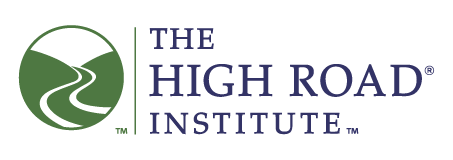In the early morning of 9/11 (2001) I was driving to a client’s office to present a newly developed seminar on leadership. Listening to the fast-breaking news as I drove, a thousand questions tumbled through my head. What’s going on? Is my family safe? Are we at war? Is the President a target?
My most urgent thought was: Would the workshop be cancelled?
I don’t recall the drive, I just remember listening to the scant and ghastly details emerging. I arrived at my destination and set up for the day-long session. Meanwhile, an employee moved a TV set into the lobby and turned it on. As employees arrived, they glued their attention to its horrifying images.
My anxiety grew about what to do and say. Attendees starting entering the workshop room looking glazed and dazed, whispering like they were in church. I could see the shock and feel the fear (which I was feeling too). Should we proceed as planned?
Trusting my intuition, I started on time. warmly and calmly, I welcomed them. I altered my planned opening by acknowledging what was unfolding that day and promised that we would have time later to discuss this ‘event’ in the context of leading others. I had no clue as to what I should say but at many moments during the day, the appropriate words came out of my mouth as if rehearsed.
I kept everyone focused, which was challenging because during our breaks, they returned to the TV and re-entered the room with fresh news and even greater angst.
In the final hour of the session, we knew the US had been strategically attacked by unnamed terrorists and that thousands were presumed dead. I led a discussion about what this tragedy might mean going forward for ourselves, our families, their employers, and the nation. Each person in turn offered their thoughts and concerns; they really wanted to talk about it. We were able to infuse most of our comments with a leadership perspective.
Before they left, exhausted mentally and emotionally, I sent them off with a spontaneous message of hope and encouragement.
Many months later, I realized something. That day we all acted as leaders most during a time of crisis or confusion. We stayed focused and followed a plan, yet deviated as needed. We integrated reality while dreaming about a better future. We made plans and fostered open dialog. Best of all, we did our utmost to analyze and apply emerging data and newly found wisdom. That day we did more than learn about leadership; on 9/11 thousands of miles away from Ground Zero, we applied it in real-time.
On September 11, 2001, a day of sorrow, shock, and tragedy, my own leadership abilities were tested and I grew in ways that I would not discover until years later.
I feel that all leaders in the US were tested that day and we are still (I hope) learning lessons of the importance and value of high quality leadership.

